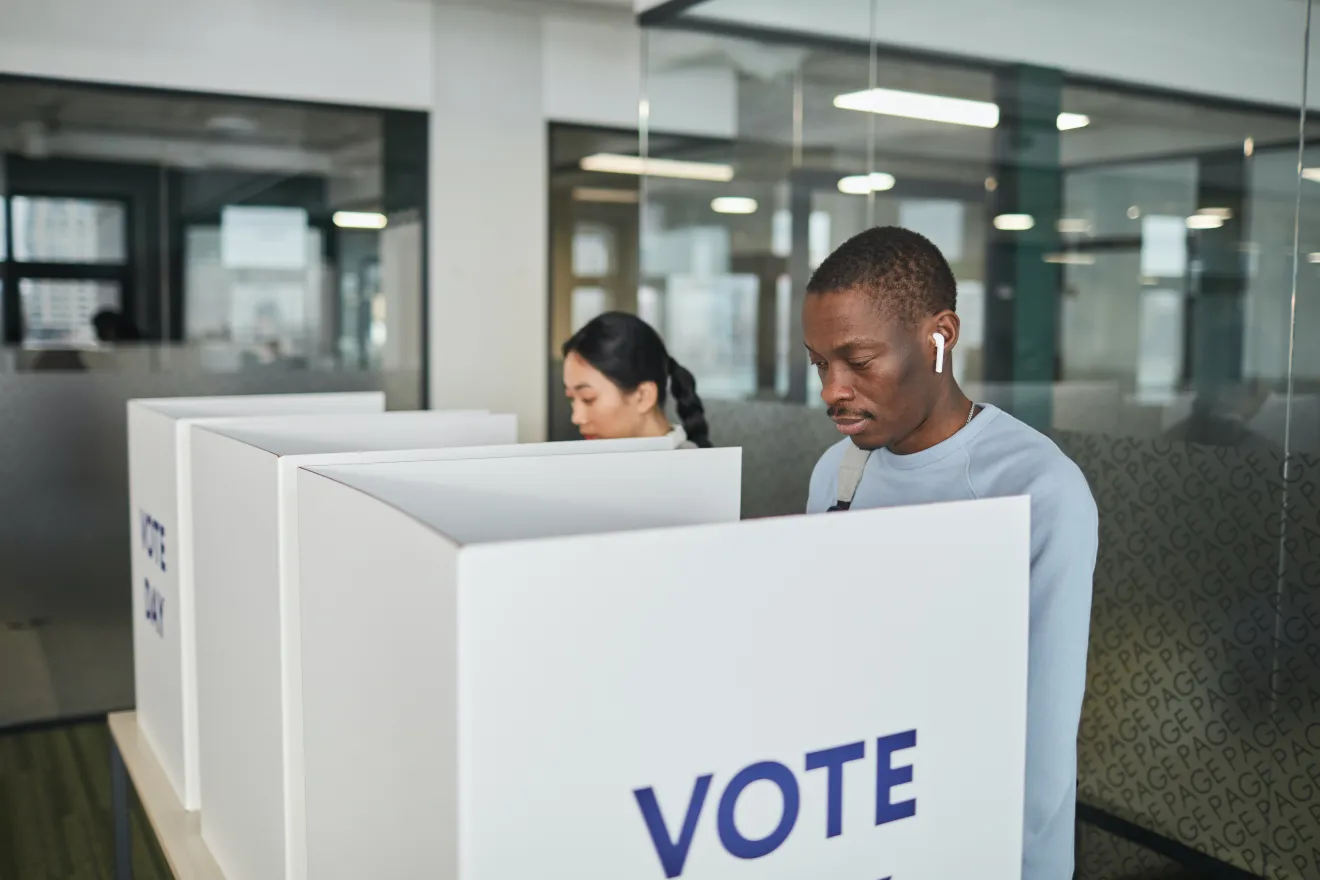Every Vote Matters
- News

History Paves the Way
“As far back as I can remember, voting was a big deal in our house. To my knowledge, my parents just don’t miss it, they still don’t and my mom’s 87. She just wouldn’t miss it,” said Melinda DelFratte, director of community living services at Boundless. For her and her family, voting is an essential right in life, but 100 years ago, the right to vote would have been a new and exciting change.
August 26 is the 103rd anniversary of the passing of the 19th Amendment, which granted women the right to vote. Advocates worked long and hard for nearly a hundred years to make women’s suffrage a reality. And while it may seem counterintuitive at first, women’s voting moved disability rights forward, too. The disability rights movement gained millions of new voters in 1920.
After the recent special election and in preparation for the November elections we wanted to share why individuals with disabilities should be encouraged to vote.
In the State of Ohio, people with intellectual or developmental disabilities (I/DD) also have the right to vote, although the history of voting with disabilities is much more complicated than a single constitutional amendment. Unfortunately, this fact is often met with surprise, even by staff members at Boundless. Margaret Stacy, residential social worker at Boundless, has often been involved in staff training and works directly with individuals who want to vote as the leader of our self-advocacy group. “One of the things we talk about in the training is how even if you have a guardian in the State of Ohio, you’re still allowed to vote. And the amount of shock every time, every training, that I would get from people of like, ‘well they have a guardian, what do you mean they can vote?’ just really shows we still have a long way to go,” she said.
In fact, Stacy has dealt with it from the other side, too. She said, “A lot of times, the guardians (of individuals served by Boundless), especially folks from older generations, unfortunately will say, ‘I can’t believe we’re talking about this rights thing again,’ and ‘this is silly, so-and-so doesn’t need to vote. They could be easily swayed by someone.’”
But if women have been voting for more than a hundred years, why should non-disabled women care about the barriers that disabled people face when voting? Well, it is the same reason men cared when women were demanding the right to vote. Voices different from our own, in this case disabled voices, are an important part of American society and should be not only be protected but heard. In the fight for women’s suffrage, many men valued the words and opinions of the women in their lives. They recognized that the women around them made the world better and that they deserved to have an equal voice in the laws that affect them. The same can be said about individuals with disabilities. Their voices are valuable, and they deserve to be heard.
And as Stacy pointed out, no one knows if or when they or a loved one will become disabled. There are many who become disabled later in life through accidents or illnesses. An older person can lose their sight or hearing, and suddenly voting is much harder without necessary protections in place. A person can sustain a traumatic brain injury and end up with a permanent disability. Someone who faced relatively few barriers in life can suddenly be thrust into a world that is not always friendly to them. “How would you feel if that were your mother, or your daughter, or your wife?” DelFratte asked.
Unfortunately, it can be hard to understand the difficulties someone faces until you experience the same difficulties yourself. Good intentions only go so far, to see changes occur in disability rights, we must empower those with disabilities. And in many cases, that is why voting rights continue to matter, 103 years after women were granted the right. “Everything that is done is done with elected officials. So (without) electing people that care about things that you’re passionate about, change doesn’t happen,” DelFratte said.
According to Stacy, many individuals served by Boundless, who live in supported living and ICFs (Intermediate Care Facilities) vote, and the staff helps them as needed. Many vote through absentee ballots and their staff will sit down with them and explain each option and help them record their vote.
During the height of the COVID-19 pandemic, a situation came up in which an individual chose not to send in an absentee ballot and insisted that it was his right to vote in-person. Stacy recalled, “So, the Boundless staff called the local Board of Elections, and everyone put on their (personal protective equipment) and a staff person (from the voting location) came out to the car and let him vote. I thought it was really cool that the staff from Boundless and the Board of Elections came together and figured out a way for him to vote even while he was sick.”
Both DelFratte and Stacy understand that not everyone will care about disability rights and their right to vote, even with all the evidence of why it is the right thing on a personal level as well as a societal level. However, DelFratte pointed out that “What other people see me doing or how I speak or how I interact with others could have an impact. You may think that this is somebody who doesn’t care, but everybody cares about something.” One person’s actions can inspire change, even if that action is as simple as voting.





